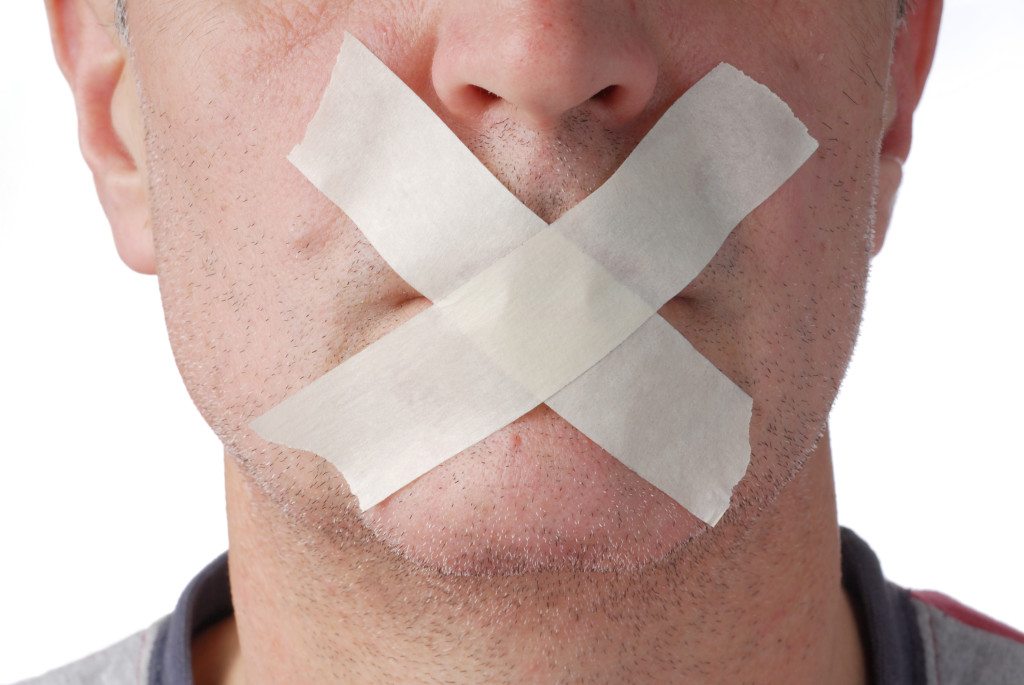I was on a long flight recently and had the misfortune of sitting behind two lawyers for several hours. For almost the entire duration of the flight, the attorneys were involved in a detailed discussion about what was obvious (to me anyway) to be a client matter. They were discussing an upcoming deposition, strategical issues, and client communications. And they had legal documents open on their laptops that I could easily see on their screens without any trouble. They were totally oblivious to their surroundings.
This type of behavior happens on a shockingly regular basis. I have overheard lawyers discussing confidential client matters in bars, restaurants, elevators, and even while riding in the Amtrak “quiet” car.
I recall a few years ago working in an office building that we shared with the U.S. Attorneys Office in Baltimore. Many times I shared the elevator with those attorneys. And I cannot begin to recount how many times I had to listen in on their case-specific discussions while riding up to my office. It was if I were a member of the trial team.
If that wasn’t bad enough, not long ago, former Trump lawyer Ty Cobb was overheard at a Washington D.C. restaurant speaking with a colleague about the Russia investigation, which Cobb was (then) working on. Problem was, their conversation was within earshot of a New York Times reporter, and the “confidential” communication became very public. As The Times reported:
To my astonishment, they were in the midst of a detailed discussion of the Russia investigations being conducted by the special counsel, Robert S. Mueller III, and various congressional committees, as well as the strategy of Mr. Trump’s team for responding.
They were in a public place where they could have been overheard by anyone. I just happened to be a reporter, and I did not misrepresent myself, so I figured their conversation was fair game. I ordered another iced tea, pulled out my phone and began typing out notes, hoping that they would assume I was merely responding to emails, tweeting or surfing the internet.
According to The Times report, the two attorneys “discussed presidential privilege and its effect on document production, tensions on the legal team and their colleagues.”
Cobb violated one of the most fundamental ethical duties a lawyer owes to her client: the duty of confidentiality.
ABA Model Rule of Professional Conduct 1.6 provides that, with limited exceptions that do not apply in the context of any of the examples above, a lawyer “shall not reveal information relating to the representation of a client unless the client gives informed consent” or “the disclosure is impliedly authorized in order to carry out the representation.” The same duty of confidentiality applies to patent and trademark practitioners and is codified at 37 C.F.R. Section 11.106.
Lawyers just seem to get very comfortable in their surroundings when they have private conversations in public places. I seriously doubt the lawyers whom I overheard on the airplane, or on the elevator, received the “informed consent” from their clients to share their confidential communications with me.
As ABA Rule 1.6(c) explains, “a lawyer shall make reasonable efforts to prevent the inadvertent or unauthorized disclosure of, or unauthorized access to, information relating to the representation of a client.”
At the very least, lawyers must always be aware of their surroundings when discussing confidential client matters. Even cell phone communications, which are easily picked up by third parties, should be avoided unless absolutely necessary. Moreover, when communicating on a cell phone about a case or client matter, the attorney should advise their client that they are on a cellular phone. Clients will appreciate knowing that you are thinking about confidentiality.
In short, lawyers need to remember when it is time to “zip it.” Openly and publicly discussing “information relating to the representation of a client” violates the ethical duty of confidentiality and exposes counsel to professional discipline.
